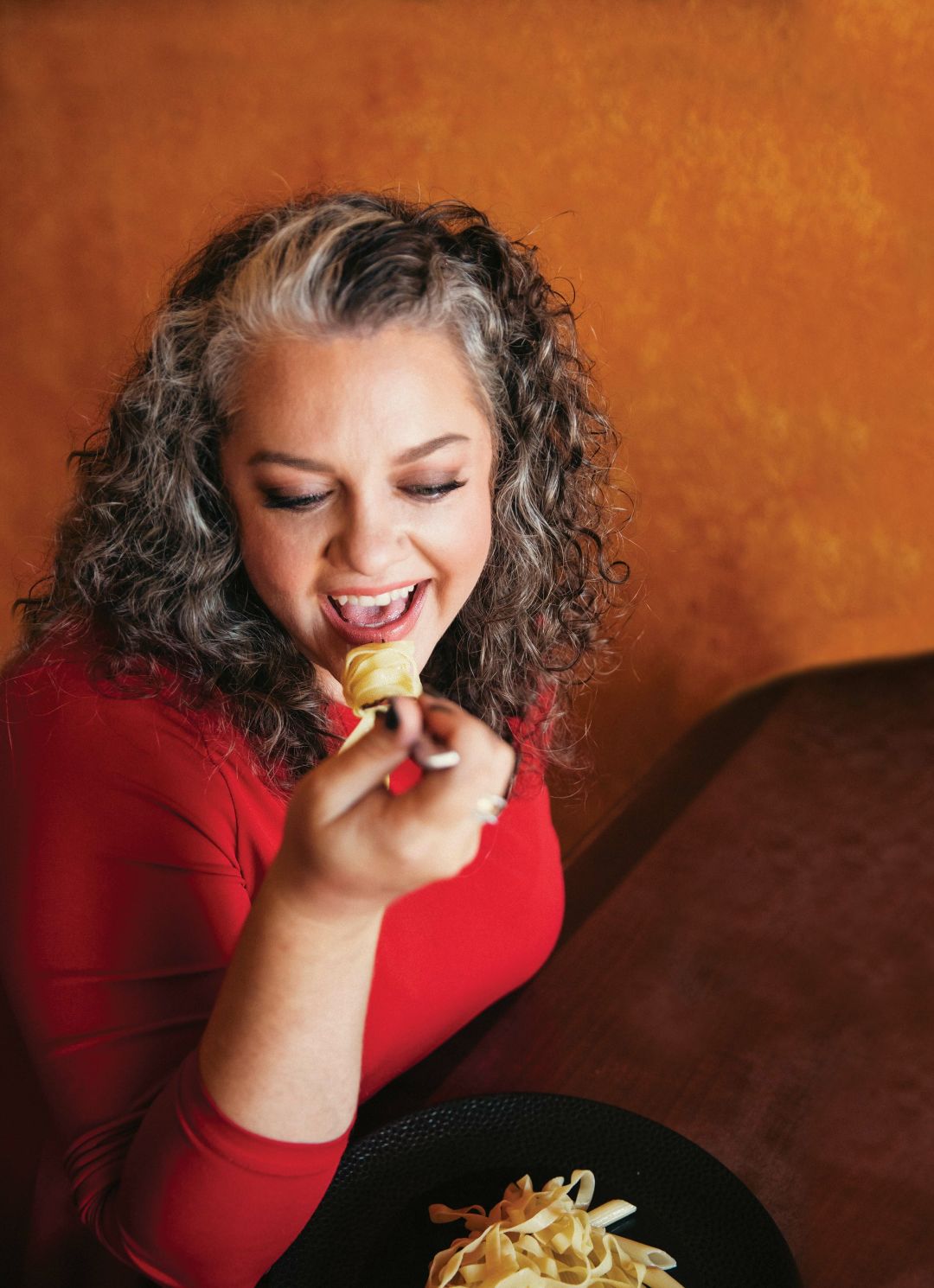For Our Eat & Drink Editor, a Lifelong Obsession With Food Started With Just One Dish

Eat & Drink editor Lauren Jackson
Image: Hannah Phillips
Most people can point to a moment in time when their life changed for good. For some, it was reading a poem by Keats. For others, it was the first time they spun a Dylan LP. For me, it was my first bite of gnocchi with pesto cream, consumed in the shadow of the Duomo in Florence, Italy, when I was 12.
My mother was a fine cook who drew from her Southern roots, making a meat-and-three for dinner nearly every night. I was accustomed to pork chops, fish and steak—always somehow overcooked and accompanied by a rotation of sides like lima beans, corn and collard greens. I sampled my grandmother’s Sunday tomato sauce whenever we visited, but was not impressed. (Sorry, Grandma.) When I was young, food was mostly an inconvenience, a forced interruption in the middle of playtime.
But suddenly there I was, in the heart of Tuscany, on the first of what turned out to be many trips to Italy with my family. I was seated beside an imposing symbol of the European Renaissance, surrounded by Medici-commissioned statues and fountains, and all I could focus on was my gnocchi. They were so soft, with a sweet anise flavor from the basil, saltiness from the cheese and acidity from the lemon, all rounded out with cream. Decades later, I can still taste it.
I left Italy obsessed with the country’s cuisine. I spent nights in the kitchen toiling over Italian cookbooks, trying to recreate some of the best dishes I had sampled. My mother had always encouraged us to participate in cooking, and her generosity with the communal space of the kitchen never wavered as I tinkered with sauces and failed time and time again.
I returned to Italy every few years, a privilege of being the child of an airline pilot. As we traipsed through Venice, Rome and Naples, I stuffed my suitcase with every spice and dried good I could get my hands on. My family, ever supportive of my pursuits, paid the price by sampling my soggy pasta and broken sauces for years.
As the visits abroad piled up, my skills grew. By the time I was 20, I was comfortable asking chefs and servers about cooking processes and ingredients. I learned invaluable skills from them, like that the only way to tell if pasta is al dente is to taste it. No timer will tell you when it’s ready; you must taste your food. Italian cuisine is practical and intuitive in that way. There are no secrets. All you need are quality ingredients and a willingness to taste as you go.
I haven’t been back to Italy in almost 15 years, but I still prepare my favorite dishes from the country at least weekly. My arsenal of recipes may be broader than when I was 12, but gnocchi with pesto cream remains my favorite, the one dish that links me most directly to my past. That day near the Duomo—that’s when I became me.



